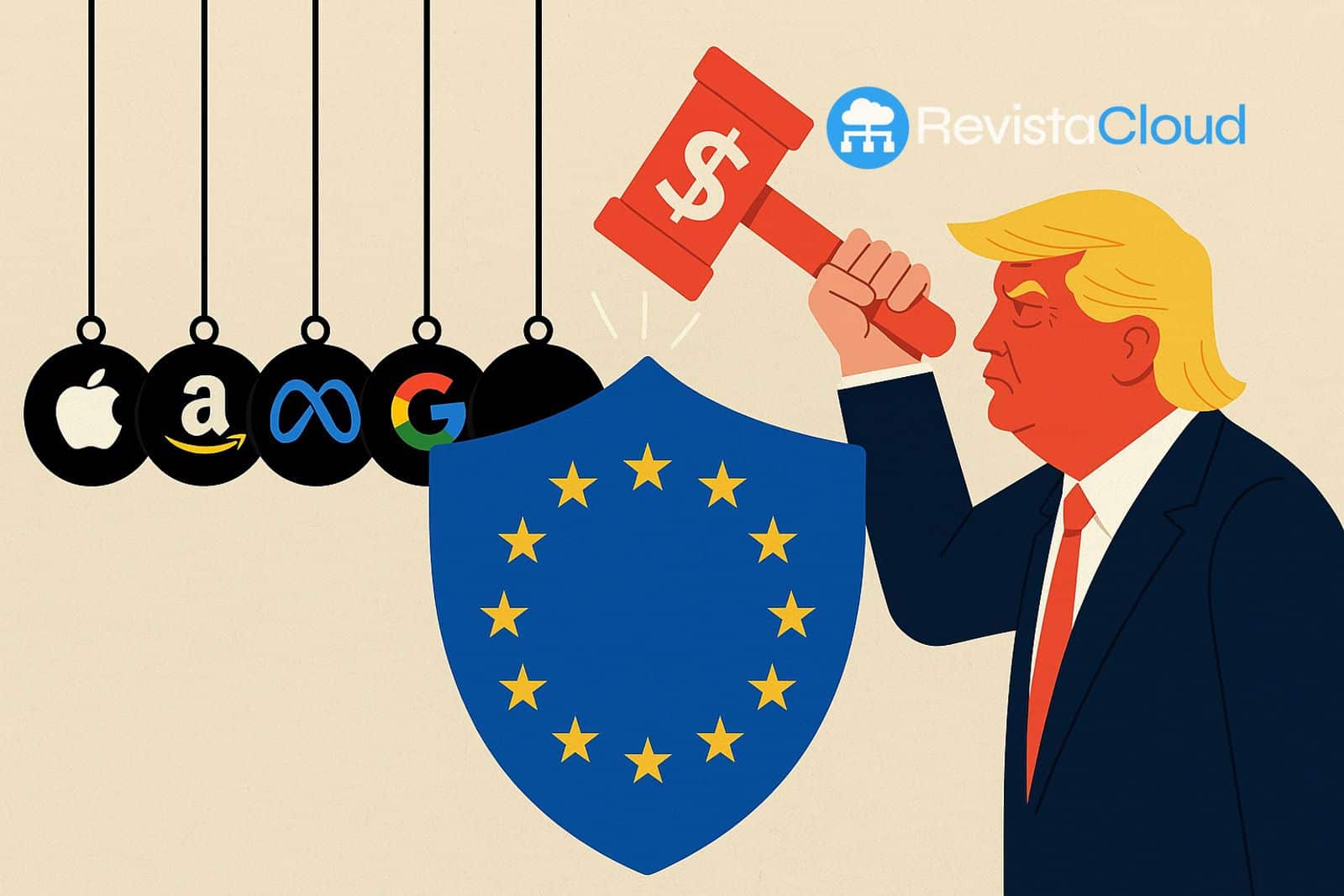Sure! Here’s the translation into American English:
—
Brussels and Washington are experiencing a new chapter of trade tension, and this time, digital services are in the spotlight. A potential response from the European Union to U.S. tariffs could jeopardize giants like Google, Apple, Microsoft, Meta, and Amazon.
The recent 20% tariffs imposed by the Trump Administration on European products like steel and aluminum have raised alarms in the European Union. According to various sources, including the specialized outlet The Register, the EU’s response could include not only physical products but also digital services, marking a radical shift in traditional tariff policy that could open a new front in international trade.
The Warning: Digital Services in the Crosshairs
French government spokesperson Sophie Primas has been clear in a recent statement: “The second response will cover all products, and I want to emphasize this: services will be included.” Among those digital services, names like Google, Amazon, Facebook (Meta), Apple, and Microsoft are explicitly mentioned, representing a potential direct offensive against the pillars of the U.S. digital economy.
Although concrete measures have not yet been detailed, this warning comes just ahead of an extraordinary meeting among EU trade ministers, which could lead to a common position before the end of April.
Can Europe Afford to Tackle ‘Big Tech’?
From an economic standpoint, U.S. tech companies generate a substantial portion of the digital services utilized by businesses, governments, and citizens in Europe. Platforms like AWS (Amazon Web Services), Azure (Microsoft), or Google Cloud support a massive part of the region’s digital infrastructure. Imposing tariffs or additional taxes on their services would ultimately increase the cost of access to these tools for thousands of European businesses, many of which are SMEs relying on U.S. software.
In other words, if Europe chooses to impose tariffs on U.S. digital services, the impact will not only fall on Silicon Valley, but on the European economic fabric. What initially seems like a retaliatory measure could turn into a boomerang.
A Precedent: Asian Products as Targets for the U.S.
On the other hand, the U.S. tariffs announced for April 9 not only affect Europe. The Trump Administration has expanded its tariff policy to include technology products made in Asia, impacting multinationals like Apple, which assemble their devices in countries like China, Vietnam, or Malaysia.
This change has already had visible consequences: Apple has lost over $600 billion in market capitalization since January, while Microsoft has lost another $165 billion in the past week. Even historic figures in the sector like Steve Ballmer or Bill Gates have expressed concern about the tariff drift: “As a Microsoft shareholder, these kinds of things are not good,” Ballmer remarked during the company’s 50th anniversary.
What if Services Are Also Subject to Tariffs?
So far, most tariffs between trading blocs have been limited to physical goods. But the 21st-century economy is digital, and the fact that services such as cloud software, digital advertising platforms, or mobile operating systems are at the core of business activity could elevate the trade war to a new level.
Bill Gates hinted at this recently: “So far, it only applies to products, but could it impact services? Who knows!”.
Conclusion
All signs indicate that the European Union is seriously considering measures that would also affect the U.S.-dominated digital ecosystem. Although there’s no official confirmation yet, if this materializes, it would represent a turning point in transatlantic trade relations.
The key question is whether Europe is willing to bear the impact these measures would have on its own digital economy. Because in the end, as often happens in these conflicts, it is always businesses and citizens who end up paying the “bill.”

